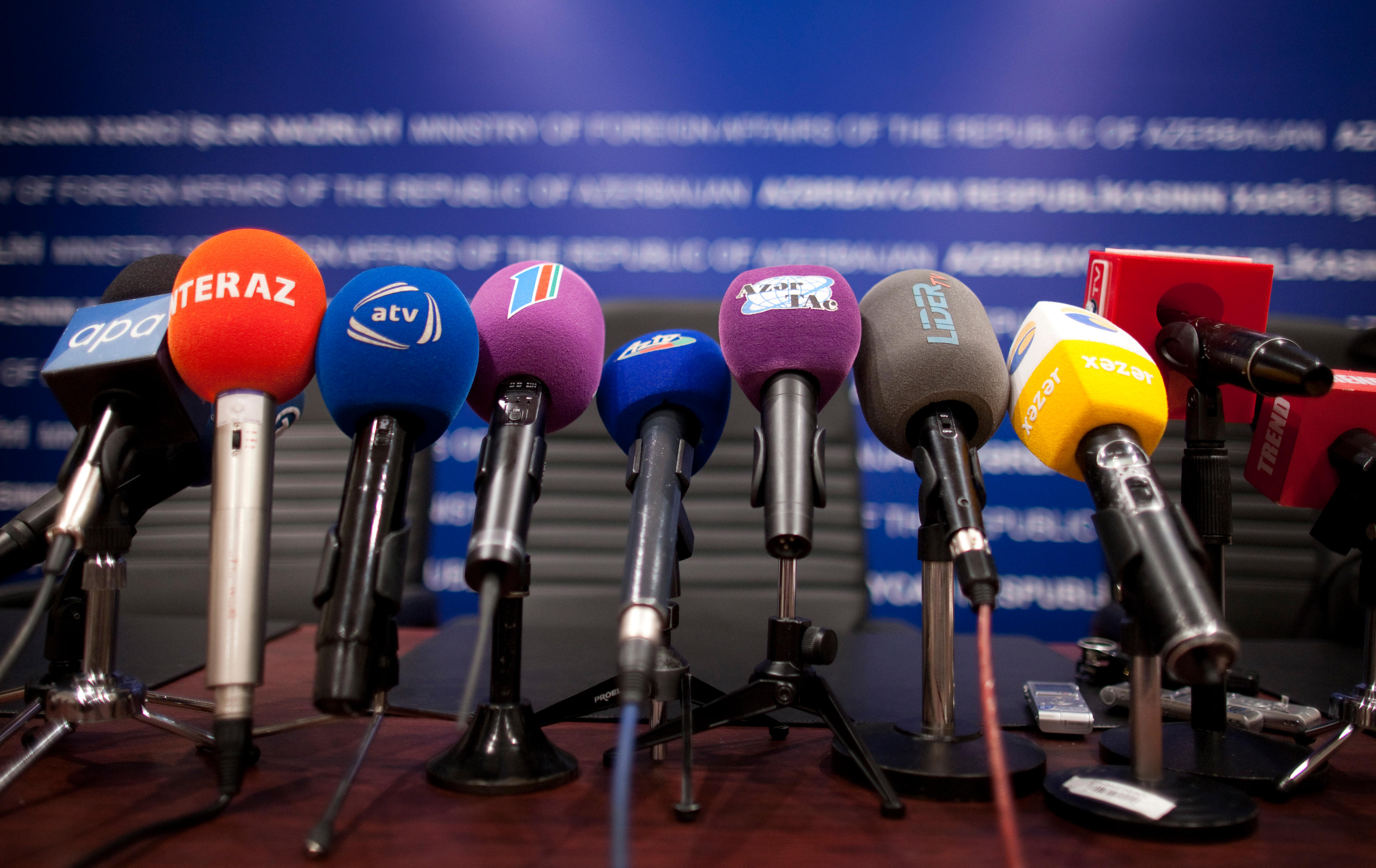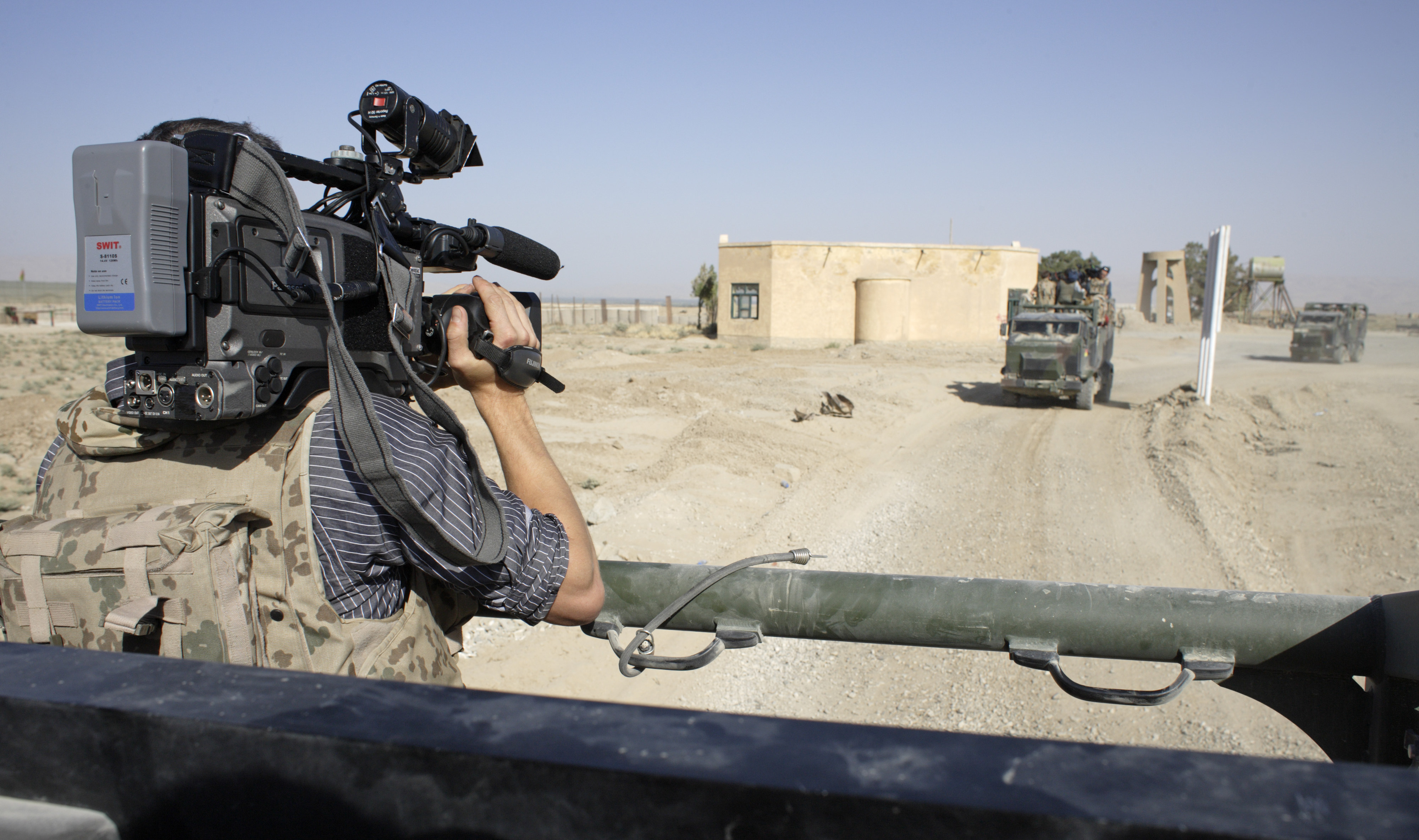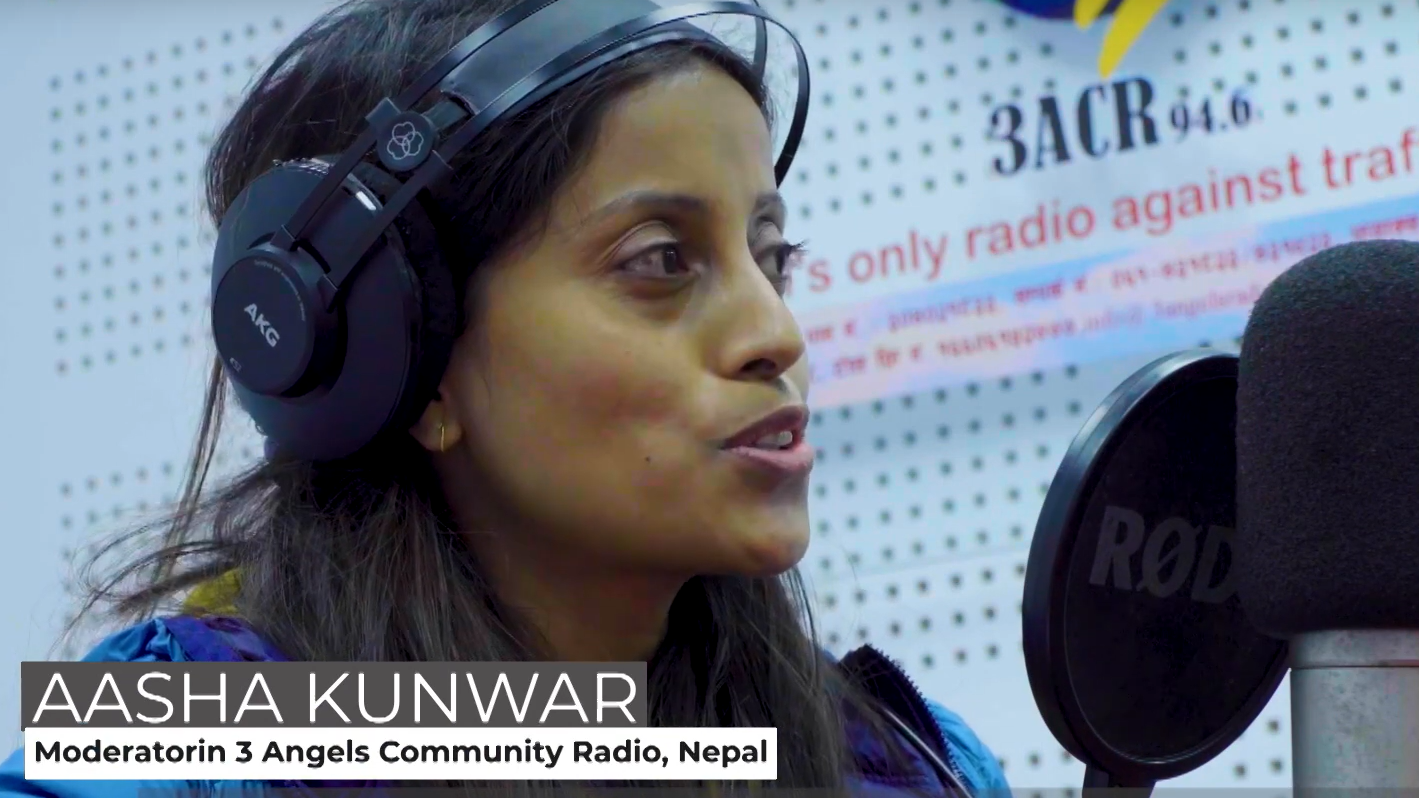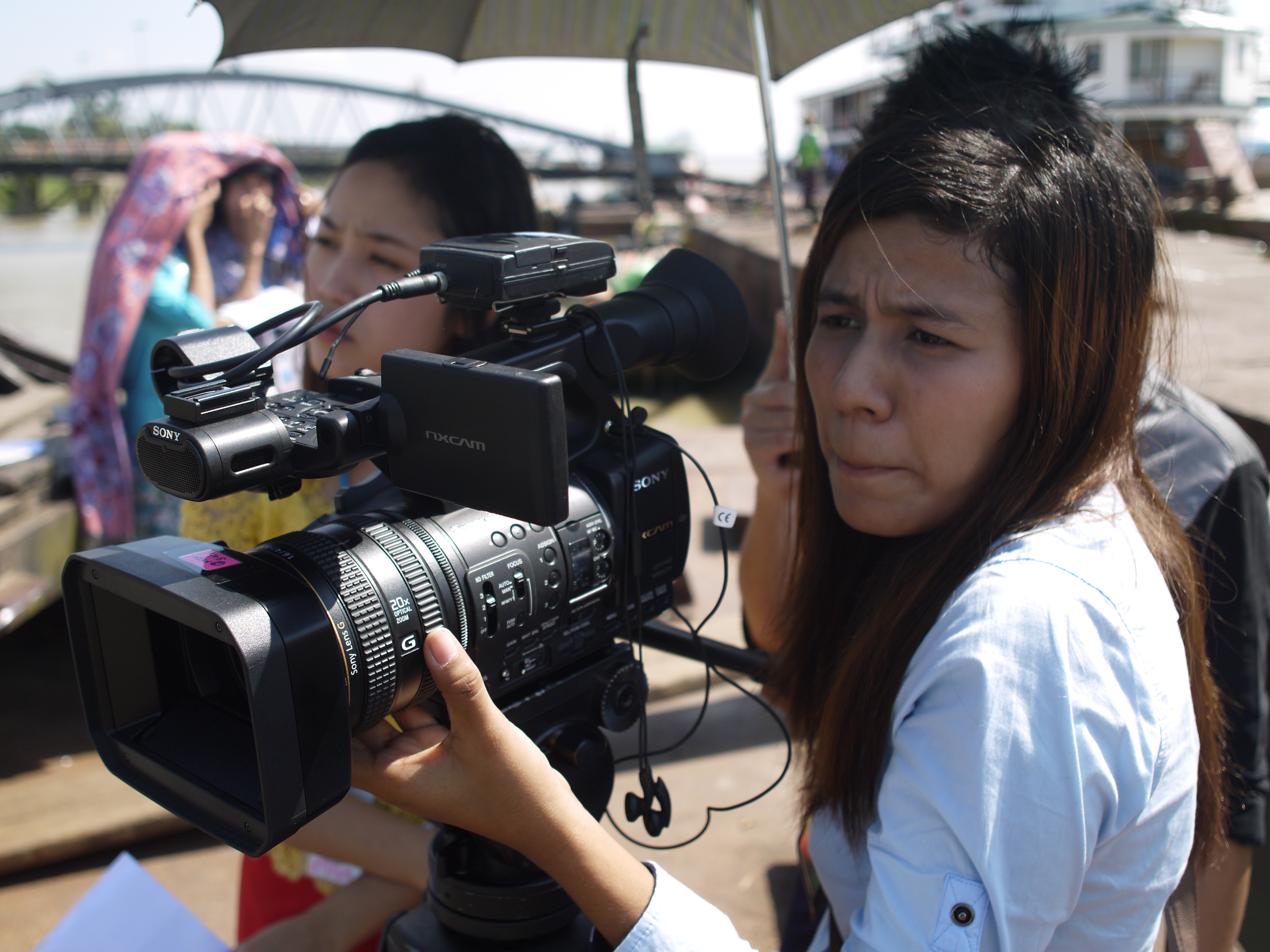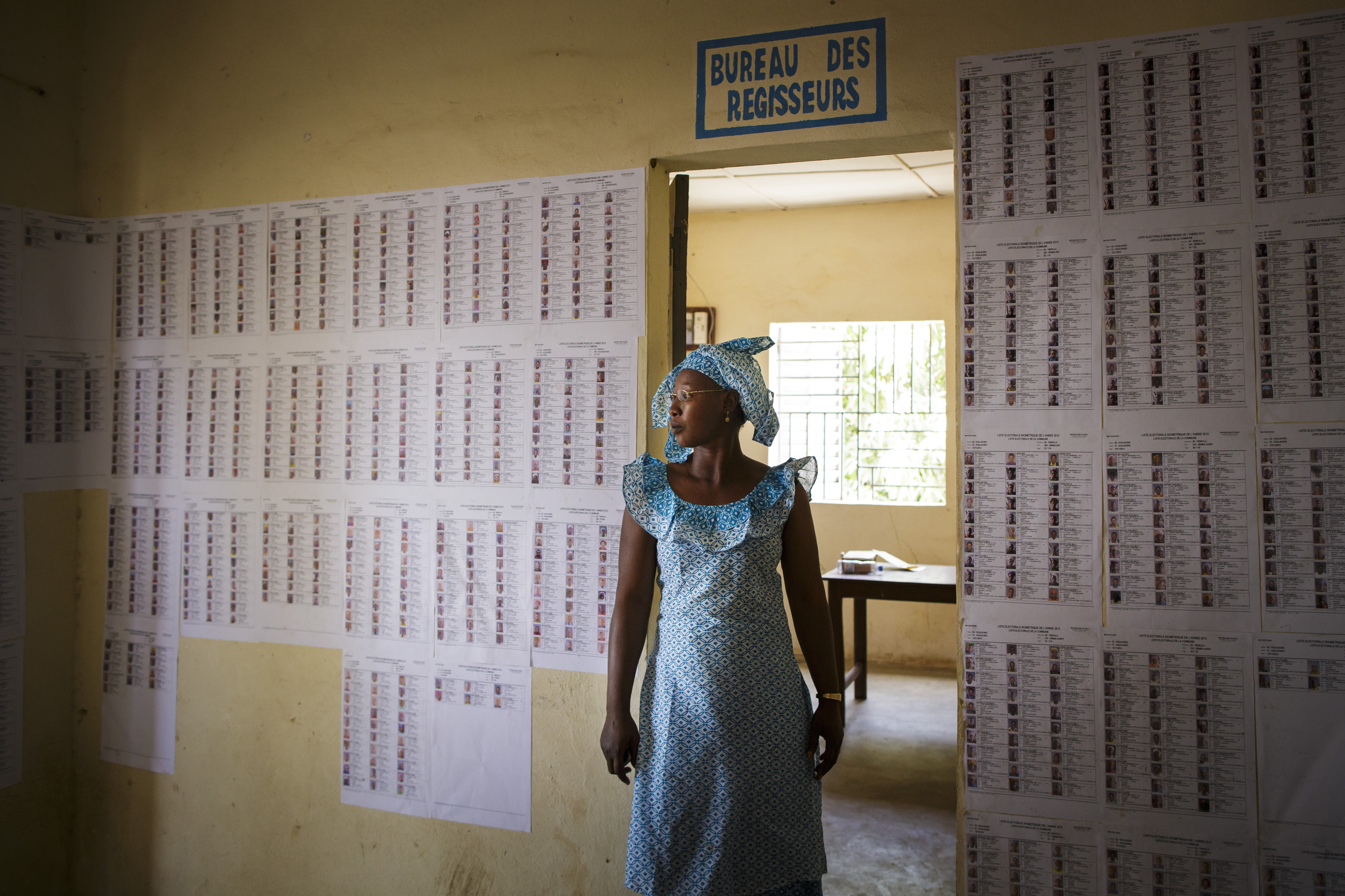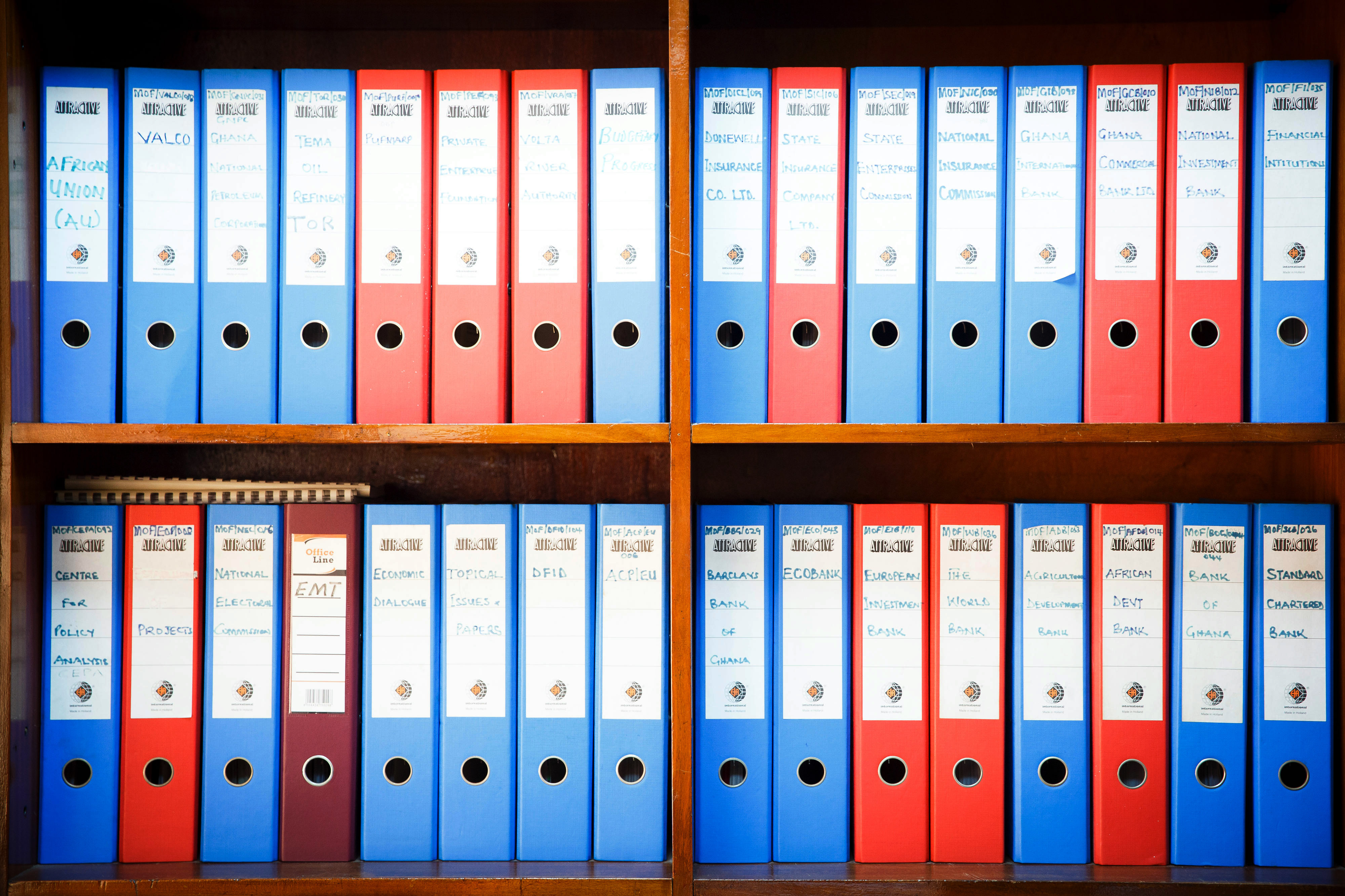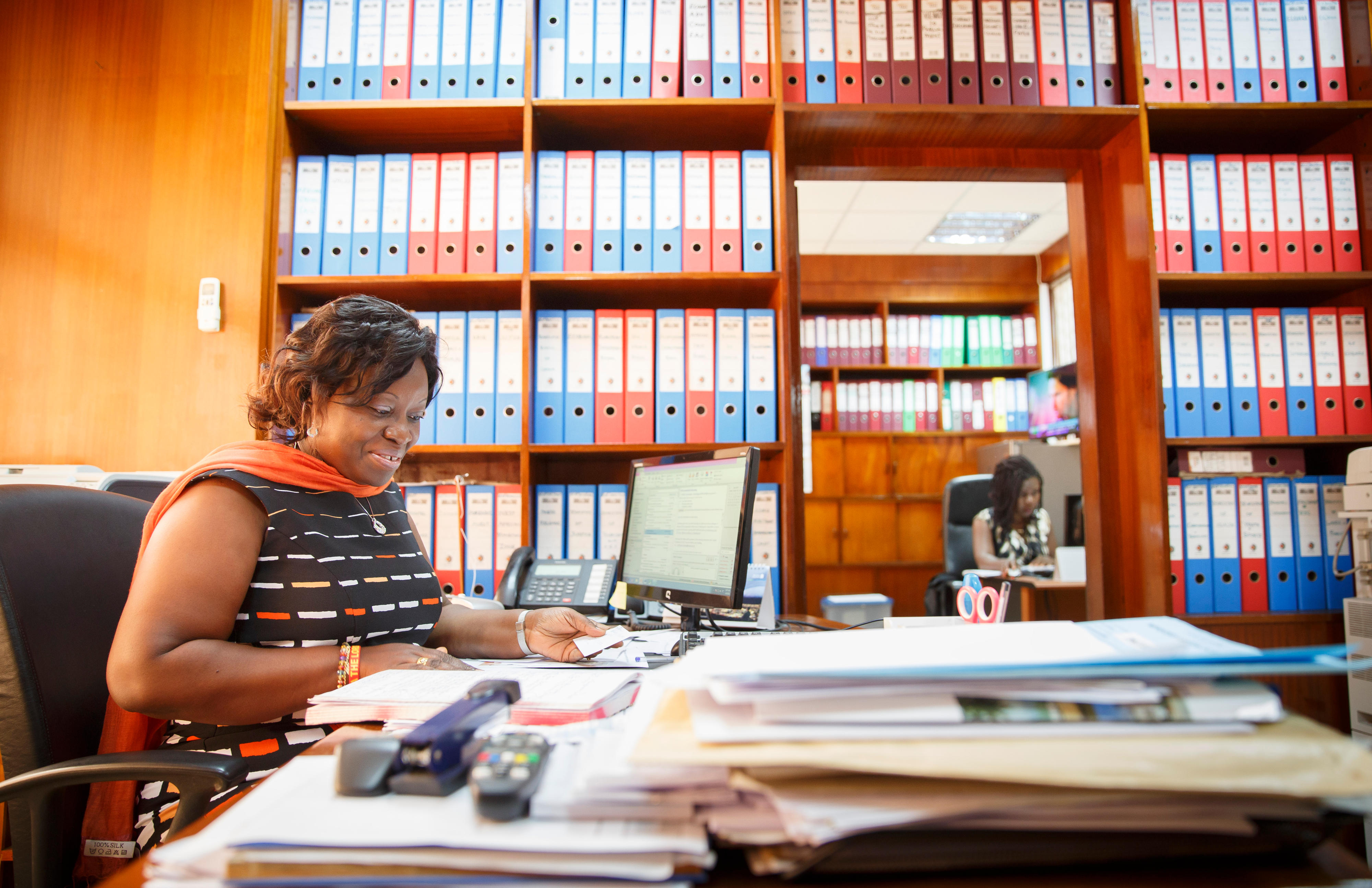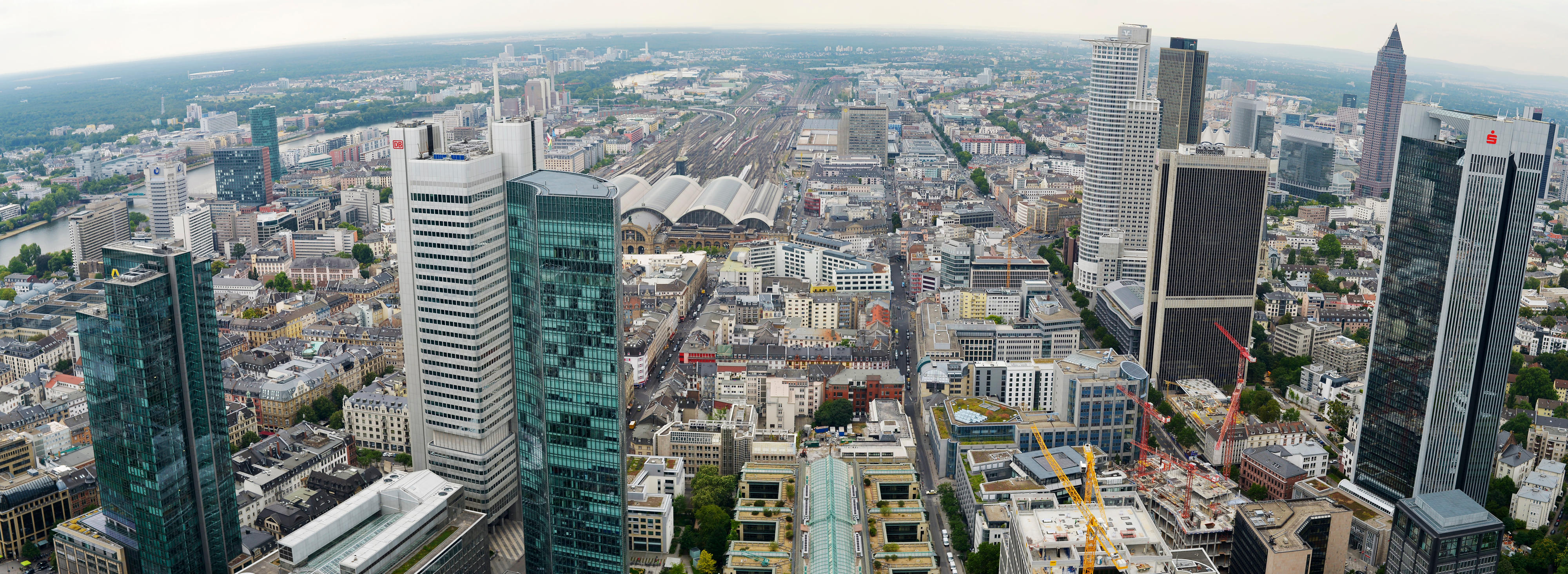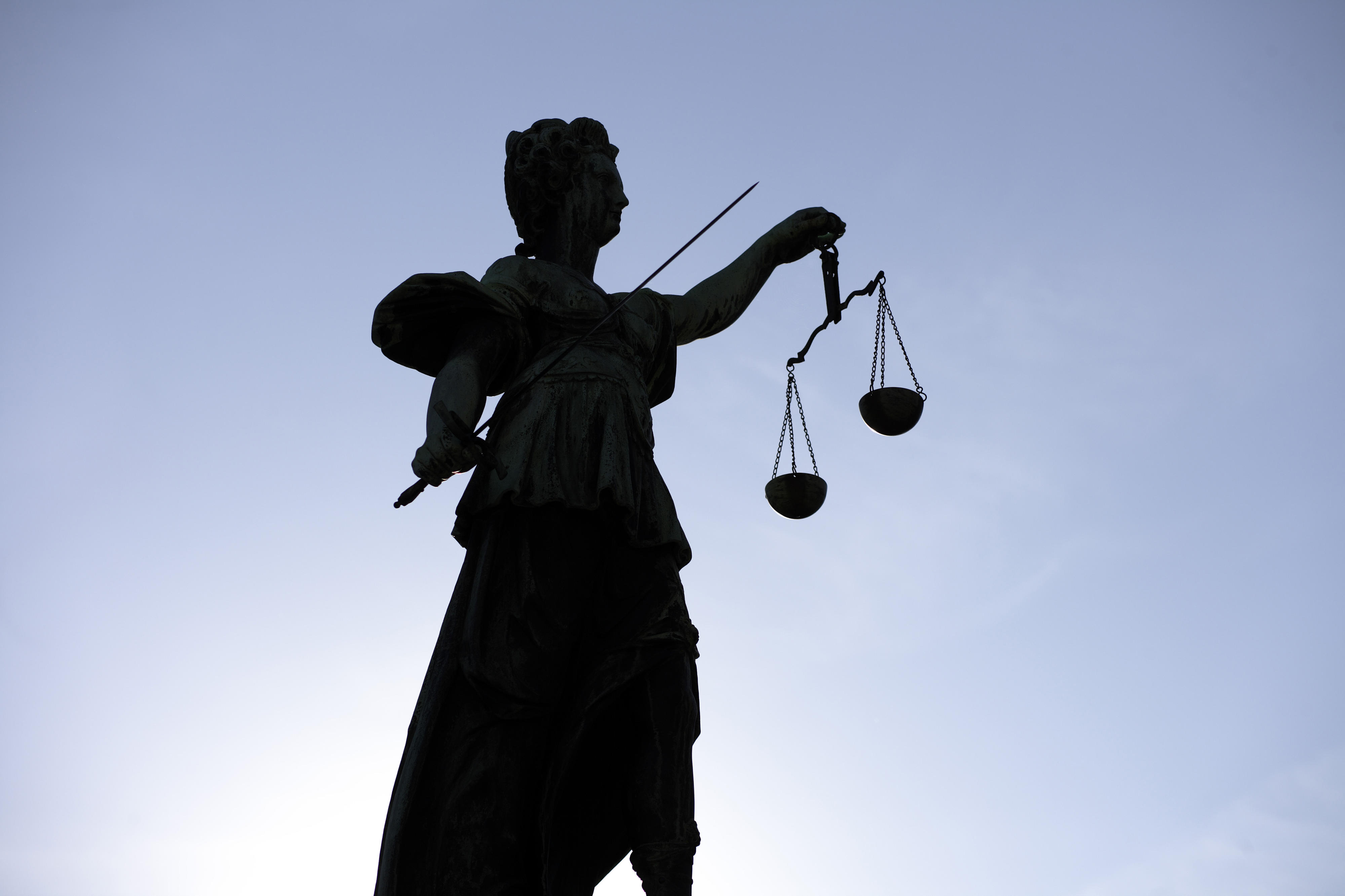Microphones of journalists at a press conference in Baku, Azerbaijan
Copyright© Thomas Köhler/photothek.net
Freedom of opinion and freedom of the press: key pillars of democracy
Development cooperation in the area of freedom of opinion and media freedom is an important pillar of Germany’s efforts to promote democracy and good governance.
It focuses on creating an environment which is conducive to a diverse media landscape and protects the right of citizens to have access to information and freedom of opinion, and which lets media professionals do their work free from fear or political pressure.
Areas in which Germany is actively engaged
General framework: Support is given to state entities and civil society organisations seeking to improve the political and legal environment for free and diverse media. Non-governmental organisations working to promote freedom of opinion and protection for media professionals and human rights activists also receive support.
Training: Training is indispensable for high-quality, socially relevant journalism. The Federal Ministry for Economic Cooperation and Development (BMZ) provides assistance for setting up training programmes, modernising curricula and training educational staff. Particular attention is given to ensuring that these activities reflect real-life journalistic practice.
Funding: The professionalism and financial sustainability of the media sector in developing countries is strengthened through measures to develop sustainable financing models for independent journalism. Innovation and quality are priorities of the work carried out together with professional associations, press councils, regional networks and media organisations.
Participation: In many countries, disadvantaged groups are extremely restricted in their ability to participate in society. In order to give them a voice and ensure that they are heard in social dialogue, activities that are relevant to the target group and are participatory, such as community media, are supported.
Media skills: Media skills are essential so that people are able to access information and express their opinion freely. Such skills include the ability to use media and media content in such a way that personal goals and needs can be met, information found and understood, ideas shared and rights actively claimed.
Media viability
The term media viability refers to media companies and media landscapes that are able to produce fact-based, quality journalistic content in a sustainable way. This is crucial for ensuring continuous access to reliable information for all. It is in the public interest for the media to be crisis-proof and resilient, particularly in times of crisis. Development cooperation in the media context can help to promote sustainable journalism.
In order to systematically measure and evaluate media viability, DW Akademie has developed, with support from the BMZ, the Media Viability Indicators (External link) (MVIs), consisting of 25 key indicators in total.
These indicators are concerned with five social dimensions that influence the functioning and the quality of news media: politics, economics, community, technology and content. They consider not only the economic viability of the media but also whether journalistic content is being produced independently, meets certain quality standards, is needs-oriented and is trusted by users.
Working together to combat disinformation
Disinformation is false or deliberately misleading information that is systematically disseminated. The systematic use of disinformation by authoritarian regimes and other actors is a threat to democracy, free elections and freedom of opinion. Russia’s war of aggression against Ukraine shows that disinformation is clearly an element of warfare. Reliable information saves lives. Good journalism counteracts disinformation.
And media skills are an essential tool when it comes to fighting disinformation, helping people to distinguish between reliable sources and propaganda, for instance by critically questioning information, verifying sources and checking facts.
Target groups of Germany’s activities
In many developing countries, public opinion is very much controlled by powerful political and economic actors. Disadvantaged groups are often not in a position to access comprehensible information or voice their opinions via independent media. This is especially the case for women in rural areas, young people living in poverty, ethnic, sexual and religious minorities, and people with disabilities.
German development cooperation puts a particular focus on supporting these groups so that they know and are able to claim and exercise their rights to freedom of expression, unrestricted access to information and social participation.
Cooperation with partners
DW Akademie (External link) is a strategic partner in the work done by the BMZ to promote the rights of freedom of expression and access to information in developing countries. DW Akademie is the section of the international public broadcaster Deutsche Welle that is responsible for the broadcaster’s development cooperation work, engaging on behalf of the BMZ in activities aimed at developing free, transparent media systems in 25 partner countries and providing training for journalists.
In addition, the BMZ works with civil society media organisations engaged in efforts to ensure that the right to freedom of opinion, free speech and access to information is respected, protected and guaranteed in the Ministry’s partner countries. In the area of bilateral technical cooperation, the BMZ also supports GIZ projects aimed at promoting the right to freedom of expression and access to information.
As at: 06/12/2023
